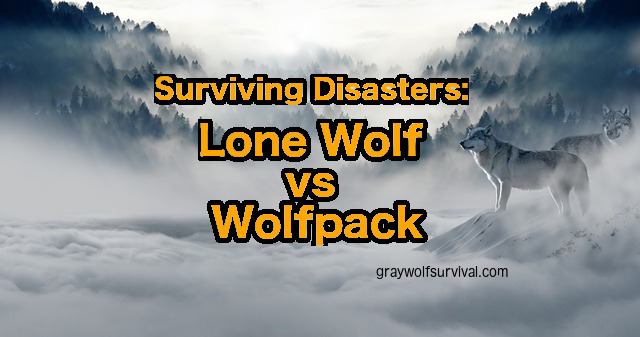 An old African proverb says: If you want to go fast, go alone; if you want to go far, go together.
An old African proverb says: If you want to go fast, go alone; if you want to go far, go together.
I’ve heard many people talk about how they’d just be a lone wolf in a SHTF or large disaster scenario (EMP/CME, grid-down, etc) because they can handle things on their own. Slow down there, Rambo, I’m here to tell you why that’s probably an idiotic plan for the long term.
I’ve seen time and time again where the discussion of whether going it alone or building a team is the best way to deal with some SHTF scenario and inevitably, SEVERAL people will pipe up and say that they work best on their own and will just scavenge for resources, etc, and everyone is on their own. Strange that the less actual real-world experience (Special Forces, combat experience, third-world travel, disaster relief) someone has, the more likely they are to think they’ll just go it alone.
Now don’t get me wrong, you need to have enough knowledge to be able to go all Lone Wolf if you need to, especially in the beginning. You may literally be on your own, with no one you can immediately trust and may not have enough skills or resources to take on a large group of clueless people who thought prepping was for crazy people. What I AM saying is that the longer a situation goes on, the more dire it is, and the more widespread its effects, the more you’re gonna need a team.
Here are a few reasons why:
Security
Scenario 1: Let’s say you got yourself all kitted-out with a sweet bug out bag and all the survival supplies you need so you could bug out if you need to, but decide that you’re gonna stay home and wait out what’s going on. You’ve stocked up a year’s worth of survival food for two people and have your own supply of water. How are you going to protect what you’ve stocked up?
If a survival situation goes on for several weeks or months, many people are going to get desperate and will start looking for places for shelter and supplies. Some of them will band together and some of them will have unsavory characters in their midst.
Are you a tactical expert? Can you protect all four sides of your compound at once by yourself? What about assets that you need that aren’t inside your direct control, such as maybe that SHTF military vehicle you got at auction or your water or fuel supplies? What happens if you ever need to leave your home and no one is left to protect it – or are you just planning on being a prisoner in your compound?
Let’s say you have a larger area, such as a cabin with acreage. Alone, you can only protect what you can see and somehow reach out and touch. Your effective AO security is extremely limited. With a group, you can spread out over a larger area.
Scenario 2: You’re caught in an area far from home and have no supplies with you at all. You’ve taken classes and maybe even have some training in survival skills so you get yourself together enough to make a plan and start heading home. Because you’ve thought about this situation or read books like A American’s Going Home series, you’ve made a plan to get home and started scavenging for supplies along the way and/or make makeshift camps. Who’s going to watch your back while you’re asleep? Who’s going to protect your supplies while you’re gathering food or water? How much can you carry if you’re forced to move on?
In either case, if you’re alone and run into a group intending on taking what you have, you’re most likely going to lose whatever they want to take and you’re most likely going to get very hurt or killed if you decide to fight.
Division of Labor
If you’re alone, you have to do EVERYTHING on your own, meaning there are some things that you’re just not going to do, such as taking time to improve your situation on any appreciable level. Alone, you’re going to be stuck in a permanent fight or flight survival mode.
In any group, you can assign duties to people. The most obvious reason is that some people have more skills or experience in a certain useful area than others. An EMT could be the group’s doctor and a former marine could take care of planning and deciding security plans. This is pretty obvious but there’s even more to it.
Even if you have a group of people where no one has any skills better than the rest, by assigning responsibilities, you ensure that those things such as security, water, food, shelter, communication, etc, are being addressed. This way, you’re less likely to have critical considerations fall through the cracks.
Also, having one person assigned to address particular items allows for an improvement in skills. For example, if you’re alone and keep having to jump from one responsibility to the other, you’re never going to improve many things. If you have one person who can take over something like gathering food, they’ll have time and devote more thinking to things like becoming more efficient at it.
It’s worth mentioning here that these duties should be just their area of responsibility but they should be able to use help from others in the group and should be able to help with other tasks as necessary. Also, finding things like food and water take up a lot of time and aren’t usually available right where you happen to be standing. Having a group allows you to spread out your gathering or scouting, all managed by the individual who’s been assigned that duty.
Hell, even just the little things get improved with a group, such as the condition and comfort of your shelter or the improving taste of the food that’s prepared.
Camaraderie and Morale
Dealing with a stressful situation by yourself is quite an ordeal. Some people do better on their own in this case – but not for long. Those people are typically already on their own and live out in the middle of nowhere. For the rest of us, having someone else to keep your spirits up and share the experience will make it easier to deal with things.
Surviving vs Thriving
This is really what it all comes down to. If you try to survive some kind of SHTF event on your own, you may well be able to survive but that’s all you’re going to do. You’re life’s gonna suck and you’ll be constantly looking over your shoulder and constantly losing some of your hard-gotten gains.
If you have a team of people, you’ll be much more likely to have the time and resources to improve your situation day by day, and eventually get to the point where your life could actually be enjoyable again.
As you can see, there are many advantages to working together as a team to survive vs going it alone. In the future, I’ll try to break some things down that I didn’t want to go into in this article but are important, such as how to start building a team in preparation for some future event that may or may not happen as well as how to build a team if you find yourself alone and need to survive.
For some inspiration or just for entertainment, check out this book series my friend A American wrote about a guy who finds himself 250 miles from home when the power grid collapses.

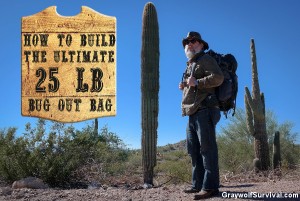
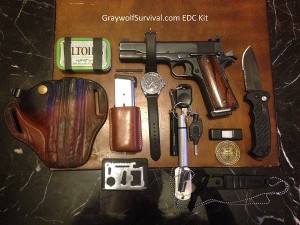

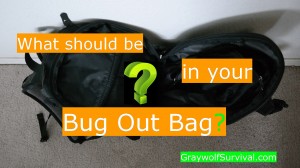

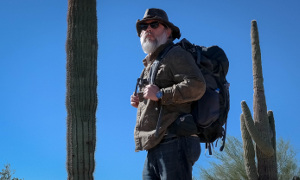
Well said sir.
What you say makes a lot of sense but unless you have knowledge of the group that you are trying to integrate with and are aware of the groups dynamics then I would offer this analogy!
A lone-wolf entering a new pack will always have to battle to establish his position within the pack and so could initially be faced with annihilation or rejection over acceptance. A lone-wolf attempting to integrate with a pack of dogs will forever have to watch his own back whilst constantly skirmishing with the dogs to maintain his credence. Regards
all depends on the mortality rate and the duration of the effects of the event. at some point in a long term scenario people MAY come together, in a short term event trust no one they will all be going crazy.
That is very true what you said about a group.
I will be on my own and I will work with others as need be. This constant refrain of lone wolf bad group good does not tell all that is to be told. I am a sheep dog I am alone amoung groups and crowds. I chose this many years ago and it will work for those that are as I am. Now for the couch Rambo being on there own is going to be tuff. Many our smart phone zombies and if they can use the group think they have a chance to live.
Networking is how I will survive but from a strong hold and many backup hidie holes. I will be on the edge of the wilderness watching the village and the woods.
Scenario: The biggest duma$$ in the world decides to go lone wolf. He has half a jar of peanut butter and a box of stale crackers.
His neighbor has put together a MAG with all the qualifications needed. At one point he vetted Bobo, but Bobo didn’t fit in.
Two days into the disaster, Bobo tells some unsavory characters that based on the vetting questions, he’s pretty sure you have some good stuff. Bobo and his group of idiots overwhelm your defense, kill everybody and take all the stuff.
Meanwhile, duma$$ is eating crackers and doesn’t have a scratch.
All I’m saying is, if you are not 100% correct in putting your group together, you are in jeopardy. Can I offer you some stale crackers?
Well, I’m not a wolf, but love to be in your pack.
It seems to me that there are two basic scenarios that a person could find themselves in, in a surprise SHTF situation: they’re a long way from home, or they can get home quickly. In the first situation, unless they have friends of co-thinkers close, they really are on their own. Good luck to them in that case. But in most situations, they will be at or near home. In that case, what Grey Wolf says is just common sense: you need a group. (Of course, for the adolescent Rambo personality types, this is no good — but they’d just living a fantasy anyway.)
What kind of group? I suggest that they should join, if possible, or form if they can, an (armed) Neighborhood Emergency Preparedness Group. Sometimes these are called ‘militias’, and a websearch will find your closest one. Some of these groups may not be appropriate, but some will be. The smartest ‘militia’ groups understand the desirability of shedding their ‘crazy-rightwingers-with-guns’ image and reverting to the good old American tradition of neighbors co operating with each other to face any emergency.
A group has the advantages of being able to have a division of labor, and a division of expenses. It can afford to undertake things like training, in first aid , weapons handling, and other, more mundane things. (How will you dispose of sewage in a real SHTF situation that lasts for months? Can you erect a roadblock? Do you know how to evacuate a casualty?)
Hollywood has been the chief educator, or rather mis-educator, not only of Americans, but of the world. Hollywood — following in the footsteps of all the great epics — reveres the resourceful, tough individual hero. But wars are won by armies, and a real army has a functioning supply chain, an engineering corps, a medical corps, a communications section, etc. Those who survive a real SHTF situation will be those who are members of something like an army, which will have a territory it defends and possibly expands.
Ditto to being in your pack! Civilization is here BECAUSE being alone isn’t effective or efficient. Also, having skills that make you a necessary or desirable component of the pack makes inclusion easier.
I can cook and I am a nurse. I believe you said you couldn’t cook…Lol